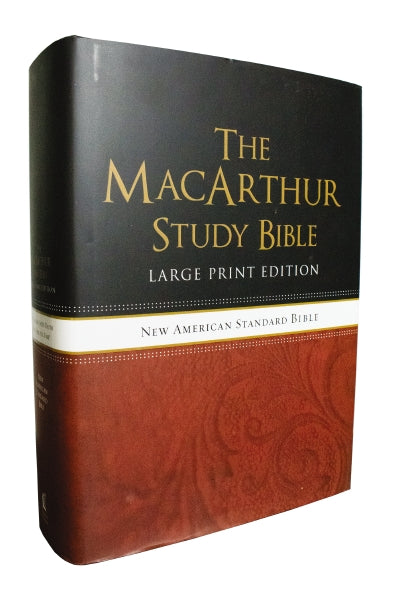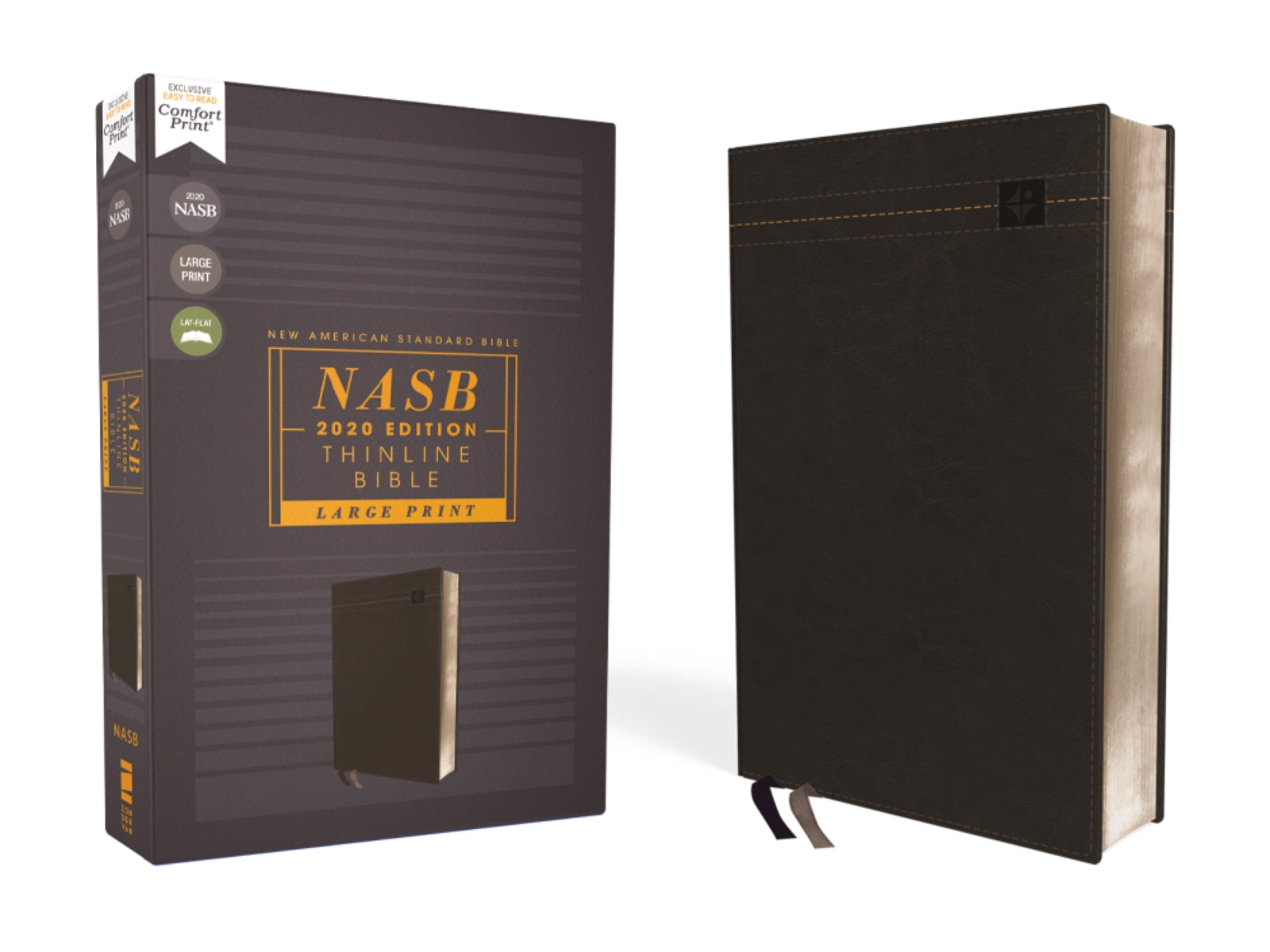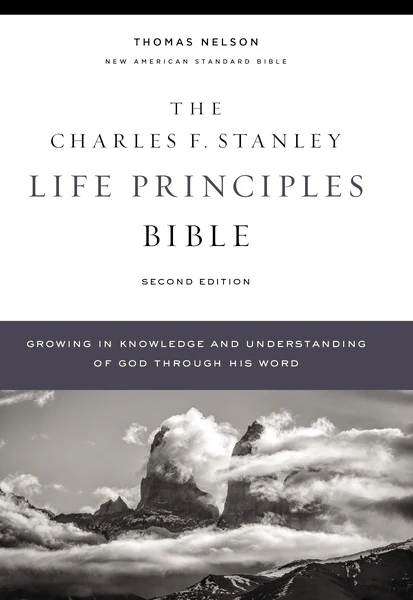1 Chronicles 3-4
New American Standard Bible
Family of David
3 (A)Now these were the sons of David who were born to him in Hebron: the firstborn was Amnon, by Ahinoam the Jezreelitess; the second was Daniel, by Abigail the Carmelitess; 2 the third was Absalom the son of Maacah, the daughter of Talmai king of Geshur; the fourth was Adonijah the son of Haggith; 3 the fifth was Shephatiah, by Abital; the sixth was Ithream, by his wife Eglah. 4 Six were born to him in Hebron, and (B)he reigned there for seven years and six months. And in Jerusalem he reigned for thirty-three years. 5 (C)These were the children born to him in Jerusalem: Shimea, Shobab, Nathan, and (D)Solomon, four by (E)Bath-shua the daughter of Ammiel; 6 and Ibhar, Elishama, Eliphelet, 7 Nogah, Nepheg, Japhia, 8 Elishama, Eliada, and Eliphelet, nine. 9 All of these were the sons of David, besides the sons of the concubines; and (F)Tamar was their sister.
10 Now Solomon’s son was Rehoboam, then Abijah was his son, Asa, his son, Jehoshaphat, his son, 11 Joram, his son, Ahaziah, his son, Joash, his son, 12 Amaziah, his son, Azariah, his son, Jotham, his son, 13 Ahaz, his son, Hezekiah, his son, Manasseh, his son, 14 Amon, his son, and Josiah, his son. 15 The sons of Josiah were Johanan, the firstborn, the second was Jehoiakim, the third, Zedekiah, and the fourth, Shallum. 16 The sons of Jehoiakim were his son Jeconiah and his son Zedekiah. 17 The sons of Jeconiah, the prisoner, were his son Shealtiel 18 and Malchiram, Pedaiah, Shenazzar, Jekamiah, Hoshama, and Nedabiah. 19 The sons of Pedaiah were Zerubbabel and Shimei. And the [a]sons of Zerubbabel were Meshullam and Hananiah, and Shelomith was their sister; 20 and Hashubah, Ohel, Berechiah, Hasadiah, and Jushab-hesed, five. 21 The [b]sons of Hananiah were Pelatiah and Jeshaiah, the sons of Rephaiah, the sons of Arnan, the sons of Obadiah, the sons of Shecaniah. 22 The [c]descendants of Shecaniah were Shemaiah, and the sons of Shemaiah: Hattush, Igal, Bariah, Neariah, and Shaphat, six. 23 The [d]sons of Neariah were Elioenai, Hizkiah, and Azrikam, three. 24 The sons of Elioenai were Hodaviah, Eliashib, Pelaiah, Akkub, Johanan, Delaiah, and Anani, seven.
Descendants of Judah
4 (G)The sons of Judah were Perez, Hezron, Carmi, Hur, and Shobal. 2 Reaiah the son of Shobal fathered Jahath, and Jahath fathered Ahumai and Lahad. These were the families of the Zorathites. 3 These were the [e]sons of Etam: Jezreel, Ishma, and Idbash; and the name of their sister was Hazzelelponi. 4 Penuel was the father of Gedor, and Ezer the father of Hushah. These were the sons of Hur, the firstborn of Ephrathah, the father of Bethlehem. 5 Ashhur, the father of Tekoa, had two wives, Helah and Naarah. 6 Naarah bore to him Ahuzzam, Hepher, Temeni, and Haahashtari. These were the sons of Naarah. 7 The sons of Helah were Zereth, [f]Izhar, and Ethnan. 8 Koz fathered Anub and Zobebah, and the families of Aharhel, the son of Harum. 9 Jabez was more honorable than his brothers, and his mother named him Jabez, saying, “Because I gave birth to him in pain.” 10 Now Jabez called on the God of Israel, saying, “Oh that You would greatly bless me and extend my border, and that Your hand might be with me, and that You would [g]keep me from harm so that it would not hurt me!” And God brought about what he requested.
11 Chelub the brother of Shuhah fathered Mehir, who was the father of Eshton. 12 Eshton fathered Beth-rapha and Paseah, and Tehinnah the father of [h]Ir-nahash. These are the men of Recah.
13 Now the sons of Kenaz were Othniel and Seraiah. And the sons of Othniel were Hathath and Meonothai. 14 Meonothai fathered Ophrah, and Seraiah fathered Joab the father of [i]Ge-harashim, for they were craftsmen. 15 The sons of Caleb the son of Jephunneh were Iru, Elah, and Naam; and the [j]son of Elah was [k]Kenaz. 16 The sons of Jehallelel were Ziph and Ziphah, Tiria and Asarel. 17 The [l]sons of Ezrah were Jether, Mered, Epher, and Jalon. And Mered’s wife conceived and gave birth to [m]Miriam, Shammai, and Ishbah the father of Eshtemoa. 18 (His Jewish wife gave birth to Jered, the father of Gedor, Heber the father of Soco, and Jekuthiel the father of Zanoah.) [n]These were the sons of Bithia the daughter of Pharaoh, whom Mered [o]married. 19 The sons of the wife of Hodiah, the sister of Naham, were the [p]fathers of Keilah the Garmite and Eshtemoa the Maacathite. 20 The sons of Shimon were Amnon and Rinnah, and Benhanan and Tilon. And the sons of Ishi were Zoheth and Ben-zoheth. 21 The sons of Shelah the son of Judah were Er the father of Lecah and Laadah the father of Mareshah, and the families of the house of the linen workers at Beth-ashbea; 22 and Jokim, the men of Cozeba, Joash, Saraph, who ruled in Moab, and Jashubi-lehem. And the [q]records are ancient. 23 These were the potters and the inhabitants of Netaim and Gederah; they lived there with the king for his work.
Descendants of Simeon
24 The sons of Simeon were [r]Nemuel and Jamin, [s]Jarib, [t]Zerah, and Shaul; 25 Shallum was his son, Mibsam his son, and Mishma his son. 26 The sons of Mishma were Hammuel his son, Zaccur his son, and Shimei his son. 27 Now Shimei had sixteen sons and six daughters; but his brothers did not have many sons, nor did all their family increase like the sons of Judah. 28 They lived in Beersheba, Moladah, and Hazar-shual, 29 in Bilhah, Ezem, Tolad, 30 Bethuel, Hormah, Ziklag, 31 Beth-marcaboth, Hazar-susim, Beth-biri, and Shaaraim. These were their cities until the reign of David. 32 Their villages were Etam, Ain, Rimmon, Tochen, and Ashan, five cities, 33 and all their settlements that were around the same cities as far as [u]Baal. These were their dwellings, and they have their genealogy.
34 Meshobab, Jamlech, Joshah the son of Amaziah, 35 Joel, Jehu the son of Joshibiah, the son of Seraiah, the son of Asiel, 36 and Elioenai, Jaakobah, Jeshohaiah, Asaiah, Adiel, Jesimiel, Benaiah, 37 and Ziza the son of Shiphi, the son of Allon, the son of Jedaiah, the son of Shimri, the son of Shemaiah— 38 these [v]mentioned by name were leaders in their families; and their fathers’ houses spread out greatly. 39 They went to the entrance of Gedor, as far as the east side of the valley, to seek pasture for their flocks. 40 They found pasture that was rich and good, and (H)the land was spread out on both sides, and peaceful and undisturbed; for those who lived there previously were Hamites. 41 (I)These people, recorded by name, came in the days of Hezekiah king of Judah, and they [w]attacked their tents and the Meunites who were found there, and utterly destroyed them to this day; and they lived in their place, because there was pasture there for their flocks. 42 From them, from the sons of Simeon, five hundred men went to (J)Mount Seir, with Pelatiah, Neariah, Rephaiah, and Uzziel, the sons of Ishi, as their leaders. 43 (K)They [x]destroyed the remnant of the Amalekites who escaped, and they have lived there to this day.
Footnotes
- 1 Chronicles 3:19 Lit son
- 1 Chronicles 3:21 Lit son
- 1 Chronicles 3:22 Lit sons
- 1 Chronicles 3:23 Lit son
- 1 Chronicles 4:3 As in some ancient versions; MT father
- 1 Chronicles 4:7 Another reading is Zohar
- 1 Chronicles 4:10 Lit take action
- 1 Chronicles 4:12 Or the city of Nahash
- 1 Chronicles 4:14 Or valley of craftsmen
- 1 Chronicles 4:15 Lit sons
- 1 Chronicles 4:15 Lit and Kenaz
- 1 Chronicles 4:17 Lit son
- 1 Chronicles 4:17 LXX Maron
- 1 Chronicles 4:18 I.e., those listed at the end of v 17
- 1 Chronicles 4:18 Lit took
- 1 Chronicles 4:19 Lit father
- 1 Chronicles 4:22 Lit words
- 1 Chronicles 4:24 In Gen 46:10 and Ex 6:15, Jemuel
- 1 Chronicles 4:24 In Num 26:12, Jachin
- 1 Chronicles 4:24 In Gen 46:10 and Ex 6:15, Zohar
- 1 Chronicles 4:33 In Josh 19:8, Baalath
- 1 Chronicles 4:38 Lit coming
- 1 Chronicles 4:41 Lit struck
- 1 Chronicles 4:43 Lit struck
Hebrews 9
New American Standard Bible
The Old and the New
9 Now even the first covenant had (A)regulations for divine worship and (B)the earthly sanctuary. 2 For (C)a [a]tabernacle was equipped, the [b]outer sanctuary, in which were (D)the lampstand, (E)the table, and (F)the [c]sacred bread; this is called the Holy Place. 3 Behind (G)the second veil there was a [d]tabernacle which is called the (H)Most Holy Place, 4 having a golden [e](I)altar of incense and (J)the ark of the covenant covered on all sides with gold, in which was (K)a golden jar holding the manna, (L)Aaron’s staff which budded, and (M)the tablets of the covenant; 5 and above it were the (N)cherubim of glory (O)overshadowing the [f]atoning cover; but about these things we cannot now speak in detail.
6 Now when these things have been so prepared, the priests (P)are continually entering the [g]outer [h]tabernacle, performing the divine worship, 7 but into (Q)the second, only (R)the high priest enters (S)once a year, (T)not without taking blood which he (U)offers for himself and for the [i](V)sins of the people committed in ignorance. 8 (W)The Holy Spirit is signifying this, (X)that the way into the holy place has not yet been disclosed while the [j]outer tabernacle is still standing, 9 which is a symbol for the present time. Accordingly (Y)both gifts and sacrifices are offered which (Z)cannot make the worshiper perfect in conscience, 10 since they relate only to (AA)food, (AB)drink, and various (AC)washings, (AD)regulations for the [k]body imposed until (AE)a time of reformation.
11 But when Christ appeared as a (AF)high priest of the (AG)good things [l]having come, He entered through (AH)the greater and more perfect [m]tabernacle, (AI)not made by hands, that is, (AJ)not of this creation; 12 and not through (AK)the blood of goats and calves, but (AL)through His own blood, He (AM)entered the holy place (AN)once for all time, [n]having obtained (AO)eternal redemption. 13 For if (AP)the blood of goats and bulls, and (AQ)the [o]ashes of a heifer sprinkling those who have been defiled, sanctify for the [p]cleansing of the flesh, 14 how much more will (AR)the blood of Christ, who through [q](AS)the eternal Spirit (AT)offered Himself without blemish to God, (AU)cleanse your conscience from (AV)dead works to serve (AW)the living God?
15 For this reason (AX)He is the (AY)mediator of a (AZ)new covenant, so that, since a death has taken place for the redemption of the violations that were committed under the first covenant, those who have been (BA)called may (BB)receive the promise of (BC)the eternal inheritance. 16 For where there is a [r]covenant, there must of necessity [s]be the death of the one who made it. 17 For a [t]covenant is valid only when people are dead, [u]for it is never in force while the one who made it lives. 18 Therefore even the first covenant was not inaugurated without blood. 19 For when every commandment had been (BD)spoken by Moses to all the people according to the Law, (BE)he took the (BF)blood of the calves and the goats, with (BG)water and scarlet wool and hyssop, and sprinkled both (BH)the book itself and all the people, 20 saying, “(BI)This is the blood of the covenant which God commanded you.” 21 And in the same way he (BJ)sprinkled both the [v]tabernacle and all the vessels of the ministry with the blood. 22 And (BK)almost all things are cleansed with blood, according to the Law, and (BL)without the shedding of blood there is no forgiveness.
23 Therefore it was necessary for the (BM)copies of the things in the heavens to be cleansed with these things, but (BN)the heavenly things themselves with better sacrifices than these. 24 For Christ (BO)did not enter a holy place made by hands, a mere copy of (BP)the true one, but into (BQ)heaven itself, now (BR)to appear in the presence of God for us; 25 nor was it that He would offer Himself often, as (BS)the high priest enters (BT)the Holy Place (BU)year by year with blood that is not his own. 26 Otherwise, He would have needed to suffer often since (BV)the foundation of the world; but now (BW)once at (BX)the consummation of the ages He has been (BY)revealed to put away sin [w](BZ)by the sacrifice of Himself. 27 And just as (CA)it is destined for people to die once, and after this (CB)comes judgment, 28 so Christ also, having been (CC)offered once to (CD)bear the sins of many, will appear (CE)a second time for (CF)salvation (CG)without reference to sin, to those who (CH)eagerly await Him.
Footnotes
- Hebrews 9:2 Or sacred tent
- Hebrews 9:2 Lit first
- Hebrews 9:2 Lit loaves of presentation
- Hebrews 9:3 Or sacred tent
- Hebrews 9:4 Or censer
- Hebrews 9:5 Also called mercy seat; i.e., where blood was sprinkled on the Day of Atonement
- Hebrews 9:6 Lit first
- Hebrews 9:6 Or sacred tent
- Hebrews 9:7 Lit ignorance of the people
- Hebrews 9:8 Lit first
- Hebrews 9:10 Lit flesh
- Hebrews 9:11 One early ms to come
- Hebrews 9:11 Or sacred tent
- Hebrews 9:12 Or obtaining
- Hebrews 9:13 I.e., ashes mixed in water
- Hebrews 9:13 Lit purity
- Hebrews 9:14 Or His eternal spirit
- Hebrews 9:16 Or testament
- Hebrews 9:16 Lit be brought
- Hebrews 9:17 Or testament
- Hebrews 9:17 One early ms for is it then...lives?
- Hebrews 9:21 Or sacred tent
- Hebrews 9:26 Or by His sacrifice
New American Standard Bible®, Copyright © 1960, 1971, 1977, 1995, 2020 by The Lockman Foundation. All rights reserved.
Bible Gateway Recommends






